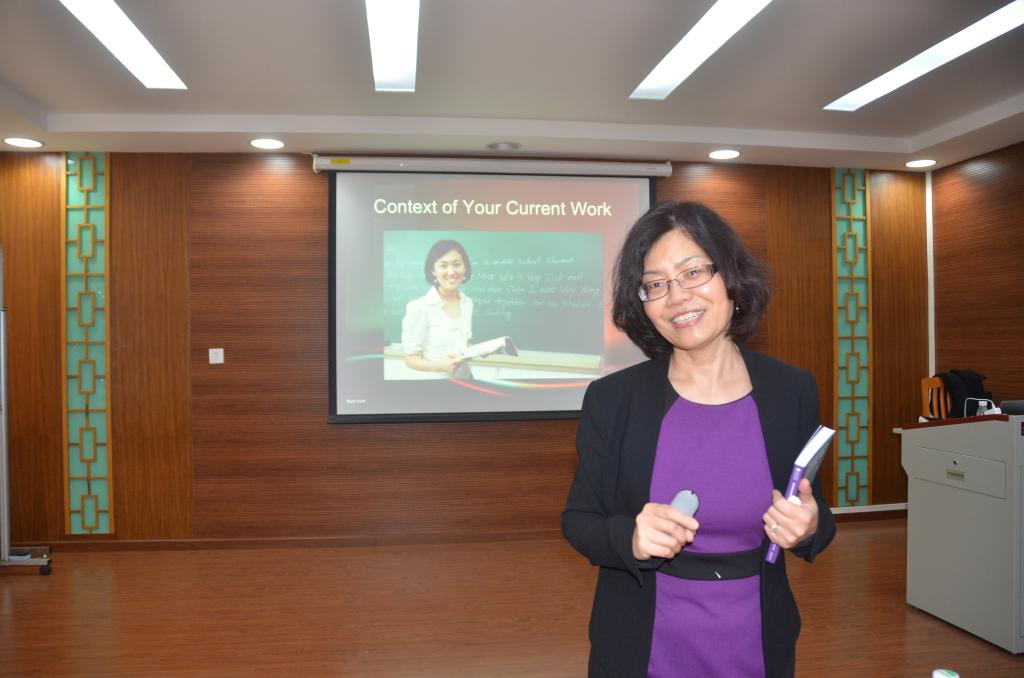On the morning of January 9, 2018, Professor Liying Cheng from Queen’s University in Canada, now working part-time as Yunshan Chair Professor at Guangdong University of Foreign Studies, held a workshop "Enhancing Teaching and Learning through Assessment" in the lecture hall in Teaching Building No. 8 at GDUFS. Many teachers and students from the Center of Linguistics and Applied Linguistics and the Education College participated in this workshop.
Professor Cheng began the workshop with an introduction of her latest book Assessment in the Language Classroom: Teachers Support Student Learning, which is coauthored with her colleague Janna Fox. This book consists of seven chapters and discusses the fundamental issues concerning classroom assessment, i.e. "why", "what", "who", "when" and “how”. These questions serve as the central theme of the workshop. To engage the audience, Professor Cheng put forward several thought-provoking questions, such as "what is assessment?", "what kind of questions your students ask when you assess?" ,"what is your philosophy of assessment?". Then, she introduced the paradigm shift in assessment from assessment of learning (AoL) to assessment for learning (AfL) and assessment as learning (AsL). After a brief explanation of the definitions of the three types of assessments, Professor Cheng focused on the essential components of assessment for learning -- events, tools, processes and decisions. She continued to ask the audience to write down at least 5 tools they would use to assess their students so that they could have a preliminary hands-on experience of classroom assessment. Through discussing the rationale of these tools and categorizing them in terms of purposes (AoL, AfL or AsL), the audience came to realize that there are no right or wrong assessment tools, which just provide different types of information and serve different instructional purposes. With a choice of appropriate tools and implementation of sound classroom assessment, teachers can help students to answer three philosophical questions in learning: "Where am I", "Where am I going", and "How to get there", students are thus motivated and move their learning forward to achieve their learning goals. When the workshop was approaching an end, Professor Cheng reiterated the relationship between teaching targets, instruction and assessment, highlighting the importance of classroom assessment in teaching.
In this workshop, Professor Cheng not just dealt with the topic of classroom assessment but also shared her academic experiences as a Ph.D student and as a researcher. The audience benefit a lot about conducting classroom assessment and academic research and are looking forward to the next lecture and workshop in the following two days.

